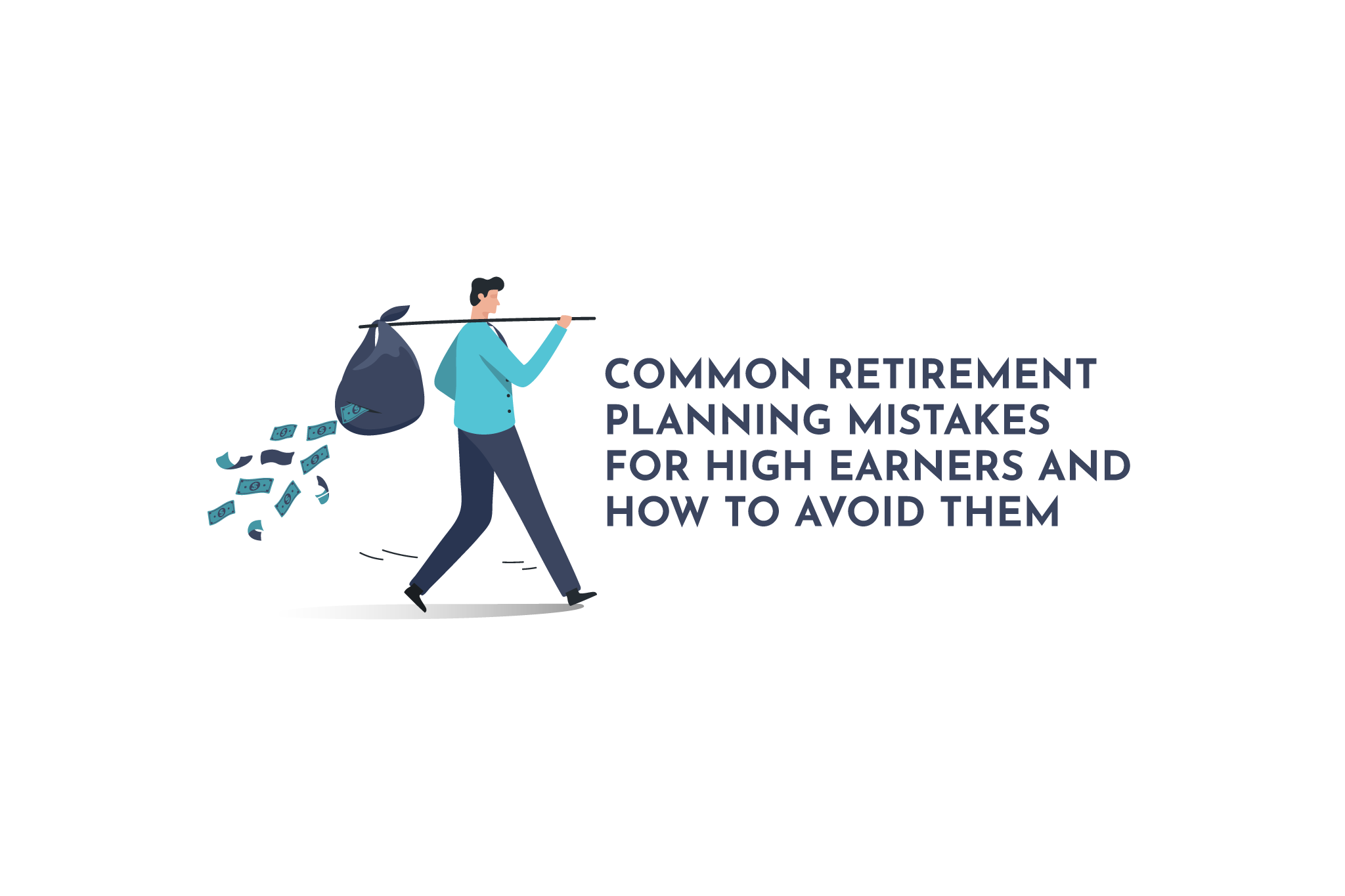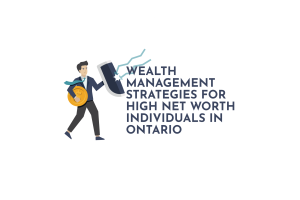We all know someone who seems to have it all put together. Maybe it’s someone you know directly or a friend of a friend, but we’ve all at least heard of someone like this. They have high incomes while working and lead a lifestyle that makes many people jealous. When you see someone who is successful, you often think they know all the answers. You assume that this success carries over into all aspects of their lives. But here’s another question: how many people do you know who have earned a high income, are now approaching retirement, and seem to be stuck working longer than you expected? You need to remember one important thing: just earning a high income doesn’t ensure a direct path to financial freedom in retirement. The key is being strategic with your planning and avoiding some common mistakes that we see high-income professionals make.
In this article:
- Mistake #1 – Not Ensuring the Most Efficient Retirement Income.
- Mistake #2 – Underestimating What you Want for the Future
- Mistake #3 – Underestimating Longevity and Inflation
- Mistake #4 – Waiting too Long for Estate Planning
- Mistake #5 – Not Working with an Aligned Team of Advisors
- A Final Thought
Mistake #1 – Not Ensuring the Most Efficient Retirement Income.
High-income earners often have one thing in common: they are very good at building wealth. Accumulating wealth is a valuable skill, but to maximize your retirement plans, you need a strategy that focuses on the tax-efficient decumulation of that wealth. Having a decumulation plan will allow you to prepare for things like:
- The timing of drawing your registered savings. All the money withdrawn from your registered savings plans is fully taxable. Having a road map that outlines the best plan for managing this income will help ensure maximum tax efficiency. It can also help you avoid losing an excessive percentage of your Old Age Security (OAS) benefit to the clawback each year.
- The benefits of income splitting. If you are married, certain forms of income splitting are available to you. Income drawn from a Registered Pension Plan (RPP), a Registered Retirement Income Fund (RRIF), or a Lifetime Income Fund (LIF) are all eligible to be split with your spouse. Income splitting prevents one spouse from being in a significantly higher tax bracket than the other and can create significant tax savings.
- Use the benefits available to you if you own a corporation. Consider using options like an Individual Pension Plan (IPP) as a tax-efficient method of withdrawing money from your corporation.
- You could also consider alternative investment strategies like leveraged investments, which provide immediate tax relief during your peak earning years and generate tax-paid income in retirement. While not suitable for everyone, if the fit is right for you, leveraging is a great tool for providing tax relief today and highly tax-effective income in the future.

Mistake #2 – Underestimating What you Want for the Future
One of the cornerstones of many retirement plans is the assumption that spending will decrease once you retire. However, this is not always the case for people who earned a high income while working. If you have become accustomed to the lifestyle you had during your working years, you probably do not want to take a step backward in retirement. Frequent travel, possibly even luxury travel, private healthcare, and the ability to support your friends and family financially are all things you may not want to give up. This means you need to have an honest conversation with your advisor about what you want your retirement to look like and plan accordingly. Having a retirement plan based on what you truly want to do in retirement is essential because that is what you are building your plan to fund.
Mistake #3 – Underestimating Longevity and Inflation
Writing this in 2025 means we have just recently experienced a period with a significant jump in the cost of living. This has brought the concept of inflation back to the forefront of everyone’s minds. The strain on everyone’s income has created an awareness that inflation is a real factor in reducing the future purchasing power of your dollars. But what about longevity? If you were born in Canada in 1960, your life expectancy was 70.32 years, whereas someone born in 2022 has a life expectancy closer to 82 years. The increased life expectancy is due to improved healthcare, better lifestyle choices, and changes in overall daily life, such as fewer people working hard manual labour jobs. This poses a challenge for retirement planning because if you don’t include inflation in your calculations, you could face a significant shortfall between what you have and what you need. This risk is magnified by the fact that living longer increases the impact inflation has on your savings. You can combat these risks by:
- Making sure your retirement plan includes inflation-adjusted forecasts for what you will need in the future.
- Remembering that even in retirement, you still need a portion of your portfolio focused on asset classes with growth potential.

Mistake #4 – Waiting too Long for Estate Planning
We all know that the tax man cometh. If you are a high-income earner, you may be able to take advantage of tools like corporations, IPPs, RRSPs, and other devices to delay taxation, but eventually the bill comes due. Under Canadian tax laws, when you die, you are deemed to have disposed of all your assets at the moment you pass. While some assets, such as your principal residence, are not subject to taxation, many others are. So, if you own shares in companies, large amounts of registered savings (in either RRSP or RRIF format), or multiple residences, your estate may face a significant tax bill.
There are various strategies you can use during estate planning to help reduce the tax burden your estate faces. Here are some examples:
- You can utilize life insurance to provide a cash infusion to help pay the tax bill after you pass away. Timing is essential for this strategy, as life insurance becomes more expensive each year because you are one year older. You also need to be healthy enough when you apply for the insurer to accept the risk. Since many people face more health issues as they age, delaying a life insurance application can make qualifying for coverage more difficult.
- Utilize charitable giving to minimize taxes and, as an added bonus, support causes that are important to you.
- Speak to your accountant and legal team about the potential for using family trusts and other similar strategies to facilitate more tax-efficient asset transfers.
Mistake #5 – Not Working with an Aligned Team of Advisors
We see this very often. Successful or wealthy individuals have professional advisors they rely on in many different areas. They typically have lawyers, accountants, and investment advisors whom they turn to for advice when needed. This is ideal. Understanding that you need expert advice and ensuring you get it is never a bad idea.
The mistake high-income earners often make is that their advisors do not know each other and do not work together to build a cohesive plan. Keeping your advisors in separate silos rather than working with a team that collaborates on your future plans can lead to missed opportunities for minimizing taxes or, in some cases, even conflicting advice. Make sure you work with a team approach for your expert advice so that your savings, tax, and estate plans all work in harmony toward achieving your goals.

A Final Thought
Years ago, I was having lunch with an old friend who was in the process of taking over a very successful family business. He mentioned that someone had told his father, who was looking to sell the business and retire, that the worst thing he ever did was put money into RRSPs because, after leaving the business, his income would not drop enough to make the tax savings significant. Admittedly, this is a problem many would seem to love to have. Entering retirement in the same marginal tax bracket as during peak earning years is not a bad problem to have because it means retirement income will be high, making it easier to enjoy retirement.
The positive outcome of this discussion was that it opened the door to a conversation about how to ensure the son does not find himself in the same situation when planning his exit and retirement. From that lunch meeting, a planning process was set in motion to help ensure that, when that future date arrives, the most efficient pathway to start the decumulation process is in place.
If you are a high-income earner and feel you need someone to talk to about your best first step, reach out to the team of experts at Strata Wealth & Risk Management and start the planning process today. You won’t regret it.




